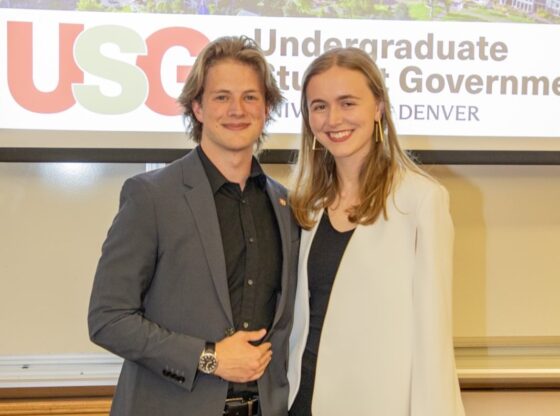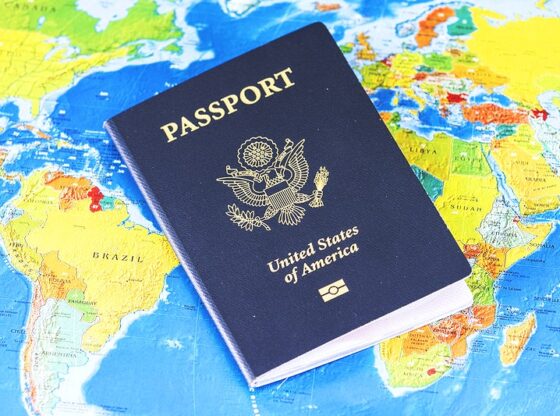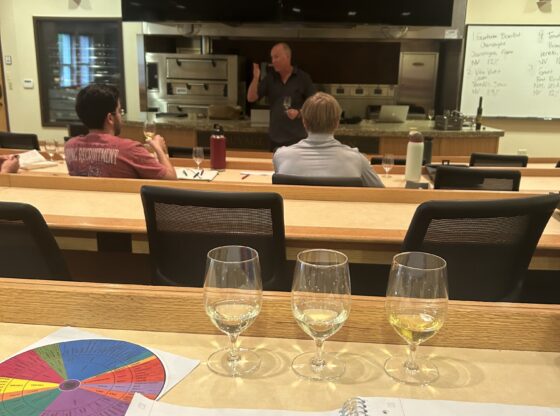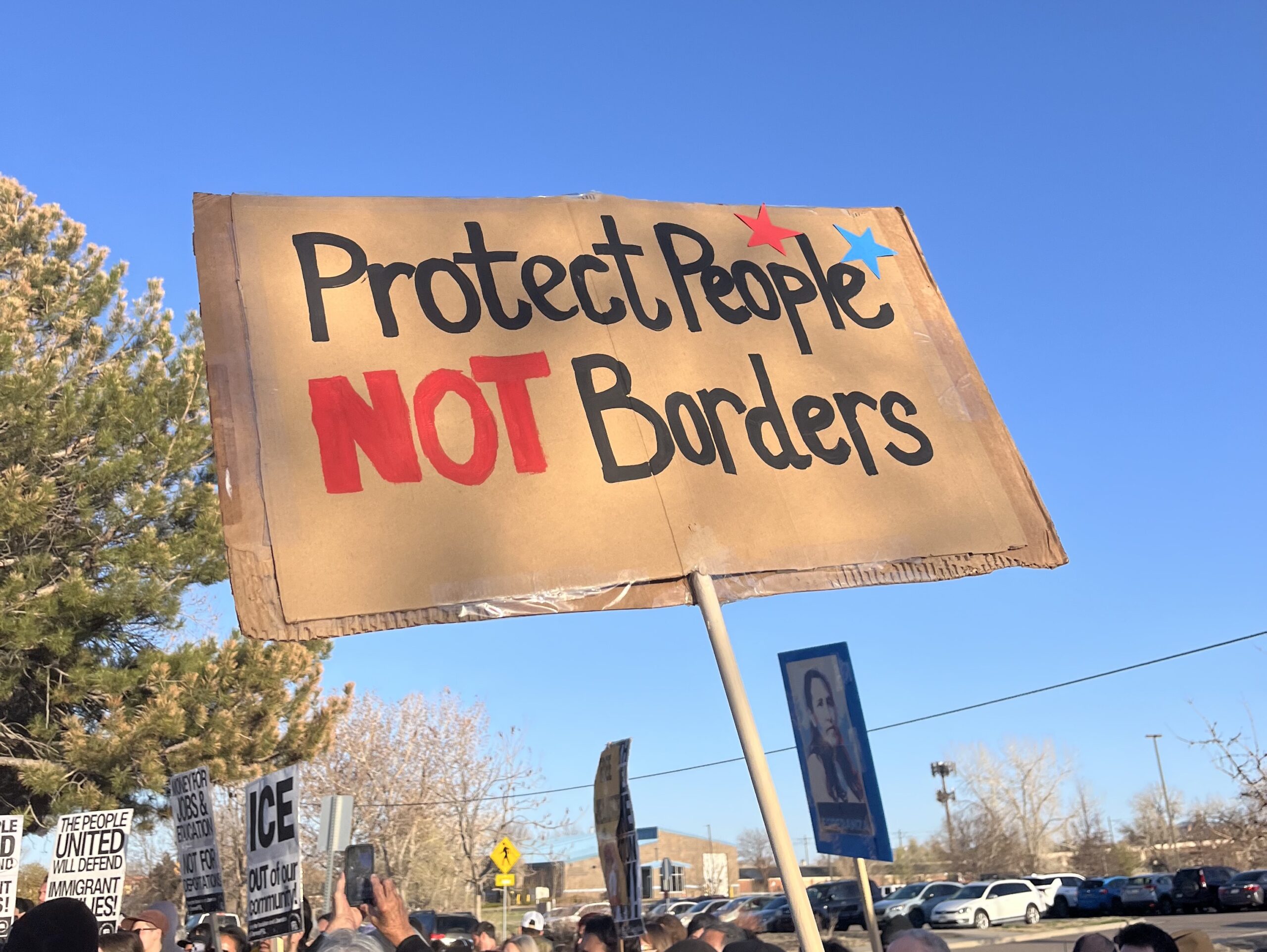A few weeks ago, I came across a post from my friend, Alex Aleman. The post stated, “I just met a wonderful Sodexo employee who shared her story with me and how she had to flee to the U.S. because of domestic violence. I don’t want to give too much detail, but if anyone is a journalist here, please hit me up. She wants her story to be heard.” As a student journalist at DU, my interests were piqued, so I reached out in hopes of finding a story.
Two weeks later, I sat down with the Sodexo cook, and she told me her story. By the end of it, I was in complete awe of her strength and bravery. As I listened to her story, I realized that this was why I had originally chosen to be journalist: because stories like hers matter and need to be heard. People like her need others to uplift their stories so that their experiences may be heard and better understood.
The cook, who wishes to remain anonymous, cannot speak English, and I am unable to speak fluent Spanish, so Aleman translated for me during our interview. The worker, as she explained, is an undocumented immigrant who fled from a small town in Mexico because of her violent partner, leaving her children and many other family members. She explained that when she was 16-years-old, she was kidnapped by the police chief in her town and was kept hostage for 22 years. Because he was the police chief, no one would or could help her.
During those 22 years, she was abused and raped. She had nine children with the man. Seven daughters and two sons. The physical abuse she endured was extreme. He once broke her leg with a rock, and another time he broke her nose. At one point, he kicked her back so hard that he damaged her kidney to where she couldn’t urinate for days and had a life threatening fever. Luckily, a family friend was able to take her to a doctor for coal miners, and they were able to help heal her.
After she went to the doctor, she finally left at age 37 after her older son bought her a small house. Initially, she had taken all of her children with her, until the man took them from her. The man used her neighbors to harass and threaten her. He used his title as a police chief to see her and say she was breaking the law. Her younger son began to defend her from this violence, until one day the man had her neighbors shoot and kill the son.
When her son died, the woman was so terrified that she moved in with her mother. The man forbid her from seeing her daughters, so she would leave notes and money in the town for her daughters to secretly take. She was being watched, and the man began threatening that he would make her “disappear,” so her mother urged her to escape to the U.S.
And so, she and her oldest son left for the U.S. In order to get to the border, they had to cross a large river. Her son didn’t know how to swim, but they went anyway because they knew they had to escape in order to survive. After crossing the river, it was late and dark, and the woman didn’t see the canal that she needed to jump over, and she fell in, breaking her leg.
They were then guided by a coyote, a person who helps to guide people living in Latin America to the U.S., through a muddy cornfield. She explained that with every step she took, it was incredibly painful. At one point, they needed to run from the police, but she couldn’t, so she and he son hid in a junkyard for days until a man found them and helped them. She stayed at this man’s house for about a week while her sisters gathered the $5,000 needed to get her to where they lived in Denver.
She finally arrived in Phoenix and rode in a semi truck to Denver. When she arrived to Denver, her sisters took her to a house with people who knew how to fix her leg so that they wouldn’t have to amputate it.
Since she has arrived in Denver, she has worked as a cook, housekeeper and custodian to survive. She is now 57-years-old and is currently in a happy, healthy relationship she’s been in for several years. Her kidneys still hurt from the abuse she has endured, and she has had to have surgery on them a few times while in the U.S. She works hard to send money back to her parents and daughters in Mexico. She said, with pride, that her daughters are well educated, with one being a teacher, another a police woman and one a lawyer.
She told me that she likes to work hard, and she is a team player. She will work hard to get anything she needs to accomplished. She remains optimistic despite her trauma and is trying to learn English in order to become a higher cook in Sodexo.
Recently, she was notified that her plea for asylum in the U.S. was not accepted, and her lawyer is working hard to fight for her to be able to stay in the U.S., but they won’t know for sure until two years from now.
After she told me her story, I told her a little bit about my family. I told her that I came from a grandmother who died crossing the U.S.-Mexico border to create a better life for her children and descendants to come. I told her that I am deeply grateful for my grandmother and the life she has created for me, and that I, too, honor her own courage to risk her life to create a better life for her and her son. I truly cannot imagine anything more brave and courageous. It’s a strength that I, and many others, do not have.
This woman’s story also made me think about how easy it is to make the “issue” of immigration and immigrants in the U.S. about numbers, crime and money, and to ignore the people—the very real human beings with feelings and experiences and lives— who are immigrating to the U.S., many of whom are seeking refuge.
Most recently, there was an outrage in Colorado over the 55 migrants from Central America seeking refuge in state. The comments on the news articles announcing this were full of angry comments questioning the legality of their entry into the U.S., and the burden this would cost on taxpayers. Many people voiced that they didn’t believe these refugees had the right to be here.
But I argue that seeking refuge is a human right for all. Instead of demonizing immigrants for coming into the U.S., I ask that we take the time to listen to the stories that they have to share, such as this woman’s. After listening to their stories and realizing the humanity in each and every migrant entering the U.S., we begin to realize these immigrants are people who are deserving of safety, just like we are. When we begin to humanize the “immigrant,” we begin to have compassion for them—compassion that they deserve.












